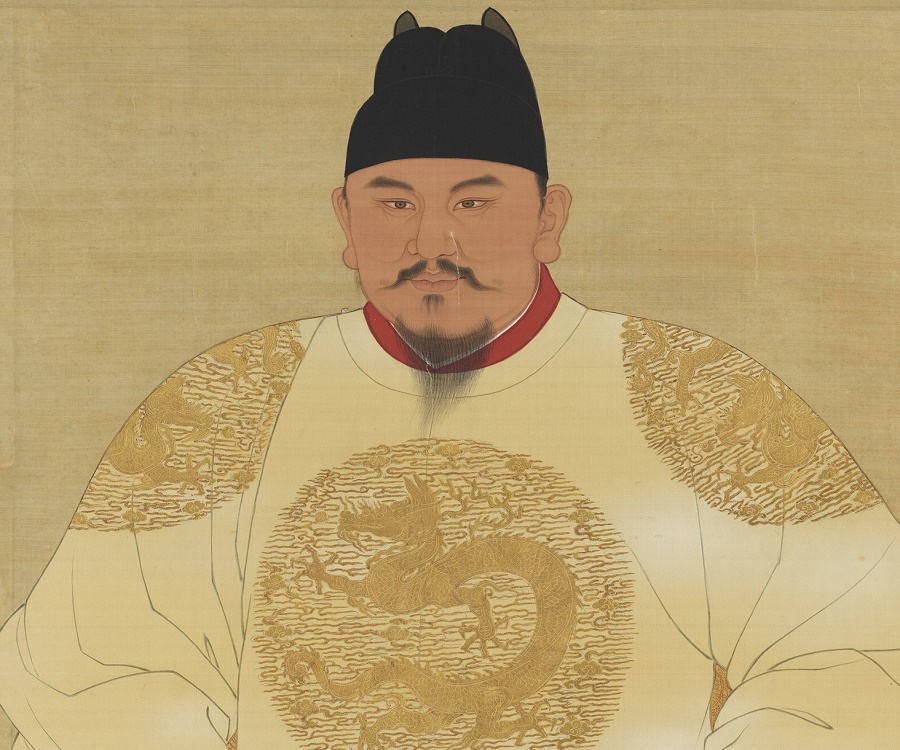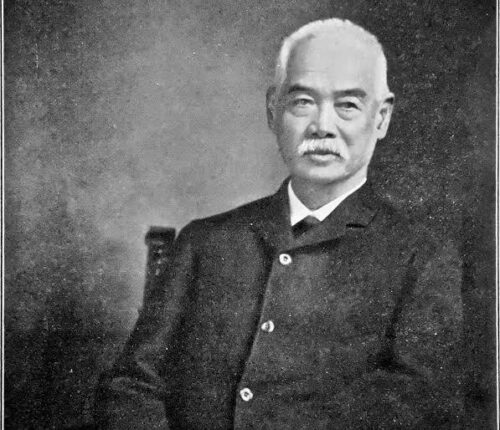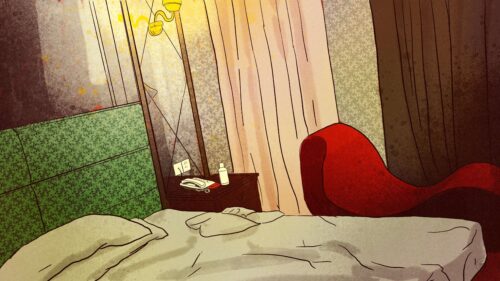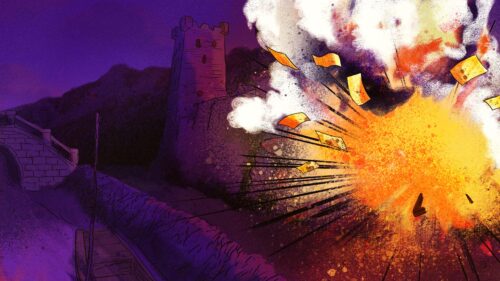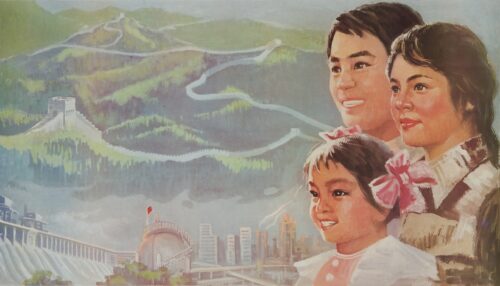This Week in China’s History: July 28, 1372
The emperor had been awake before dawn. He had spent hours attending the audiences that were a burden of his office. Summer in Nanjing was hot — the city came by its nickname as one of China’s “four furnaces” honestly — and the founder of the Ming Dynasty was never known for his easygoing demeanor anyway. Sure to be irritable by midday, his mood was not helped when two of his advisers interrupted him to present him with…a melon?
Actually, two melons, sort of: two melons grown from a single stem. Not sliced or prepared to eat, but sitting on a lacquer tray. The ruler of the earth’s most powerful empire was being bothered to look at decorative fruit. “[H]e was astonished and puzzled when he first saw the melons, even a bit peeved to be interrupted at work,” writes historian Sarah Schneewind.
The incident that Professor Schneewind describes so ably in A Tale of Two Melons (seriously, get a copy here) was considered important enough to be recorded in the chronicle of the emperor’s daily events and also in the recollections of several of the top officials involved. The “tale of two melons” mattered not because it was a natural oddity, but because of what it tells us about power and legitimacy in China during the Ming Dynasty (and maybe today, too).
The Hongwu Emperor (also known by his posthumous temple name, Tàizǔ 太祖) came to power amid violence, and his reign was yet fragile. He was one of just two men, ever, to rule as emperor of one of China’s great dynasties after being born a peasant, and questions of legitimacy were never far from his mind. The Ming was just four years old in 1372; for it to survive, Taizu needed to lay claim to the Mandate of Heaven, a vague, supernatural indicator of the right to rule. Strange natural occurrences, for good and ill, were useful though dangerous omens for assessing the Mandate. Useful because evidence of the Mandate, aside from political or military success, was hard to come by; dangerous, because how to interpret these omens was far from self-evident. What heralded success to one observer might show another one impending doom.
So what to make of two conjoined melons?
One of the emperor’s top advisers, the Minister of Rites Táo Kǎi 陶凱, presented the melons straightforwardly as good news. Conjoined melons were rare and wonderful. Two fruits for the price of one suggested prosperity and plenty. Furthermore, the melons had grown in the village of Jurong, the emperor’s ancestral home (though not the poor village where he had been born). What could be more obvious: abundance growing in the fields of the emperor’s ancestors?
What’s more, the symbolism of the melon, rather than some other crop, was significant. Melons had originated in the west: Gansu province, at the edge of the empire. The new emperor had named his reign Hongwu — Great Military Prowess — to celebrate his martial achievements, and the conquest of the western regions was an essential part of his program. A fruit born of the west flourishing in the emperor’s hometown: again, nothing could be clearer.
Another adviser drew precedents from the past, quoting the Tang Dynasty statesman Hán Yù 韩愈, who described two fruits borne on a single stem as a particularly benevolent omen. Tying Taizu’s young dynasty to the mighty Tang, perhaps China’s most powerful empire, was sure to win the minister points.
All this shows the perspective of court. But there were other viewpoints. Before the two melons could be presented to the emperor, they had to be grown, of course. The story of the farmer who grew them and then made a gift of them provides a different context on this tale.
His name was Zhāng Guān 张观. The Zhang family was one of the most powerful and important in Jurong County, much more prominent than the local Zhu clan that now counted the new emperor among its members. Why had Zhang decided to make a gift of his unusual fruit, and why to the emperor? It may have been genuine admiration for the new ruler, or perhaps flattery with some reward in mind? Some have even suggested it was meant to remind Taizu of his humble background.
Whatever his motives, after presenting his gift to the court, Zhang Guan got a little money and an ode written by the emperor himself as a reward. He returned home. Since we don’t know why he presented the gift, we don’t know if he was satisfied.
Some years later, around 1390 probably, Zhang Guan encountered the emperor again. This time, it was to protest the wrongful arrest of his younger brother. It was a case of mistaken identity, most everyone agreed, and Zhang Guan presented a petition asking that the wrong be righted. Surely, the Emperor would correct the injustice, perhaps recalling the good omen Zhang Guan had given his nascent dynasty a few years earlier.
He did not. Instead, Taizu had Zhang Guan arrested as well, and both brothers were beheaded. A shocking turn of events, especially after the auspicious melons.
But the case was not quite done. Posterity viewed the emperor’s actions as such an egregious miscarriage of justice that Zhang Guan went down in history as an example of a virtuous man, his life held up in local histories as an example to future generations for his loyalty and sacrifice. Taizu, exalted as an emperor, is also seen now as a paranoid megalomaniac (supporting this point, nearly all of the officials present when the melon arrived at court were, themselves, executed by their capricious ruler).
So what lessons are we to take? Put most simply, who won? Was it Taizu, who rose to the ultimate power, or was it Zhang Guan, whom history came to regard as a model of virtue?
Following Sarah Schneewind, I think that the lesson is not which side was right or wrong, but in the need to attend to both sides of the scales. Removed from this case by more than six centuries, we still see the trappings of power and the struggles to adapt, by both ruler and ruled. Taizu wielded power, but ambition consumed him and his legacy was mixed. His dynasty survived, but many of his plans for its future foundered, as did his personal reputation. For Zhang Guan, does the admiration of history make up for his wrongful death?
“Emperor and Subject” is the subtitle of Schneewind’s book. We no longer have literal emperors in China, but the ties between ruler and ruled have never been more scrutinized. Since 2008, those ties have been strained and tightened in many directions, in China’s heartland but also to the far reaches of Beijing’s power, from Hong Kong to Xinjiang. Taizu no doubt felt as though he had achieved Wealth and Power for his empire, two traditional goals of Chinese statecraft. It’s likely that Xi Jinping feels this too. Will his legacy stand up better than Taizu’s has?
This Week in China’s History is a weekly column.
